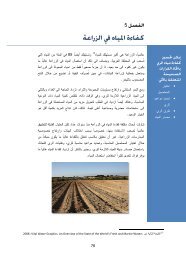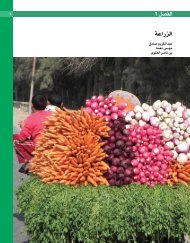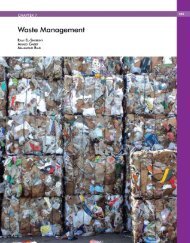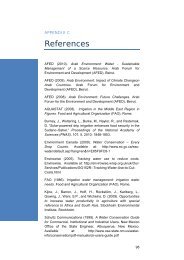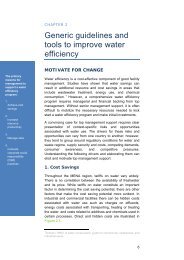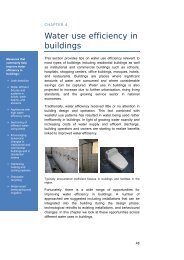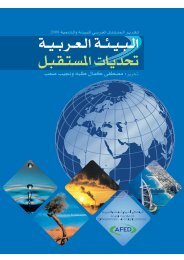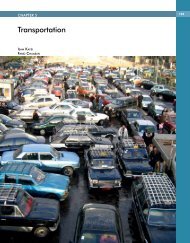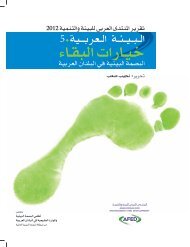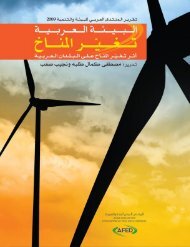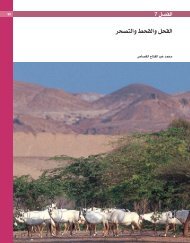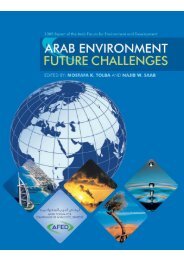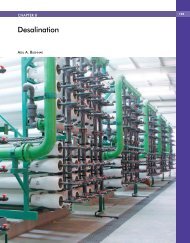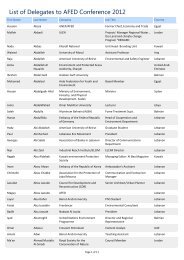Impact of Climate Change on Arab Countries - (IPCC) - Working ...
Impact of Climate Change on Arab Countries - (IPCC) - Working ...
Impact of Climate Change on Arab Countries - (IPCC) - Working ...
Create successful ePaper yourself
Turn your PDF publications into a flip-book with our unique Google optimized e-Paper software.
4<br />
CHAPTER 1<br />
ARAB PUBLIC OPINION AND CLIMATE CHANGE<br />
FIGURE 1<br />
FIGURE 2<br />
without interviewers. The questi<strong>on</strong>naire was distributed<br />
through Al-Bia Wal-Tanmia<br />
(Envir<strong>on</strong>ment & Development) magazine, and<br />
eight daily <strong>Arab</strong>ic-language newspapers. These<br />
included Al-Hayat (pan-<strong>Arab</strong>), An-Nahar<br />
(Leban<strong>on</strong>), Al-Khaleej (UAE), Al-Qabas<br />
(Kuwait), Al-Ayyam (Bahrain), Ash-Sharq<br />
(Qatar), Al-Ahdath (Morocco), and Ad-Dustour<br />
(Jordan). The survey was also promoted <strong>on</strong> the<br />
pan-<strong>Arab</strong> Future TV and the <strong>Arab</strong>ic service <str<strong>on</strong>g>of</str<strong>on</strong>g><br />
I UNDERSTAND WHAT CLIMATE CHANGE IS<br />
Yes<br />
95%<br />
Agree<br />
TOTAL SAMPLE<br />
Agree 98%<br />
TOTAL SAMPLE<br />
Yes<br />
No<br />
I BELIEVE THE CLIMATE IS CHANGING<br />
I d<strong>on</strong>'t know<br />
No<br />
5%<br />
I d<strong>on</strong>'t know<br />
2%<br />
M<strong>on</strong>te Carlo Dawliya radio and posted <strong>on</strong> the<br />
website <str<strong>on</strong>g>of</str<strong>on</strong>g> AFED.<br />
Al<strong>on</strong>gside data collecti<strong>on</strong>, the questi<strong>on</strong>naire was<br />
designed in a way to make use <str<strong>on</strong>g>of</str<strong>on</strong>g> the wide reach<br />
<str<strong>on</strong>g>of</str<strong>on</strong>g> partner media outlets to spread awareness <strong>on</strong><br />
climate change and its possible c<strong>on</strong>sequences <strong>on</strong><br />
<strong>Arab</strong> countries. Starting with general questi<strong>on</strong>s<br />
about the extent <str<strong>on</strong>g>of</str<strong>on</strong>g> knowledge about what climate<br />
change means and whether it is c<strong>on</strong>sidered<br />
to pose a real threat to the country <str<strong>on</strong>g>of</str<strong>on</strong>g> the resp<strong>on</strong>dent,<br />
questi<strong>on</strong>s moved into details <str<strong>on</strong>g>of</str<strong>on</strong>g> specifying<br />
sectors affected according to priority, and identifying<br />
major measures <str<strong>on</strong>g>of</str<strong>on</strong>g> mitigati<strong>on</strong> and adaptati<strong>on</strong>,<br />
and classifying the level <str<strong>on</strong>g>of</str<strong>on</strong>g> resp<strong>on</strong>se <str<strong>on</strong>g>of</str<strong>on</strong>g> governments<br />
to deal with climate change.<br />
Resp<strong>on</strong>ses were received and processed from 19<br />
<strong>Arab</strong> countries. Results were reflected in the<br />
report, as total average as well as per country. The<br />
sample analyzed included 2,322 resp<strong>on</strong>ses from:<br />
Algeria, Bahrain, Egypt, Iraq, Jordan, Kuwait,<br />
Leban<strong>on</strong>, Libya, Morocco, Oman, Palestine,<br />
Qatar, Saudi <strong>Arab</strong>ia, Sudan, Syria, Tunisia,<br />
United <strong>Arab</strong> Emirates and Yemen. The listing in<br />
the tables and charts followed sub-regi<strong>on</strong>al clusters<br />
not alphabetical order. The report classified<br />
country clusters as follows:<br />
Levant: Iraq, Jordan, Leban<strong>on</strong>, Palestine, Syria.<br />
Gulf: Bahrain, Kuwait, Oman, Qatar, Saudi<br />
<strong>Arab</strong>ia, United <strong>Arab</strong> Emirates.<br />
<strong>Arab</strong> African countries: Algeria, Egypt, Morocco,<br />
Sudan, Tunisia.<br />
Other: Libya, Mauritania, Yemen (small sample<br />
for individual statistics for the first 2, and socioec<strong>on</strong>omic/geographical<br />
c<strong>on</strong>siderati<strong>on</strong>s which<br />
dictated to keep Yemen out <str<strong>on</strong>g>of</str<strong>on</strong>g> clusters).<br />
The majority <str<strong>on</strong>g>of</str<strong>on</strong>g> resp<strong>on</strong>dents replied by mail<br />
(53%), while 42% used e-mail, which reflects<br />
wider use <str<strong>on</strong>g>of</str<strong>on</strong>g> electr<strong>on</strong>ic media am<strong>on</strong>g participants.<br />
The remaining 5% replied by fax. As it<br />
was not a requirement to use the original questi<strong>on</strong>naire,<br />
many answered <strong>on</strong> photocopied sheets.<br />
The answers were sorted and statistically tabulated<br />
by Pan <strong>Arab</strong> Research Centre (PARC), a<br />
Gallup associate. A data base, including socioec<strong>on</strong>omic<br />
data, was prepared. In additi<strong>on</strong> to<br />
allowing socio-ec<strong>on</strong>omic analysis <str<strong>on</strong>g>of</str<strong>on</strong>g> the sample,<br />
it helped to eliminate duplicati<strong>on</strong>, as the program<br />
deleted multiple answers received from the same<br />
pers<strong>on</strong>.<br />
The combinati<strong>on</strong> <str<strong>on</strong>g>of</str<strong>on</strong>g> voluntary resp<strong>on</strong>dents<br />
through a regi<strong>on</strong>al envir<strong>on</strong>mental magazine and<br />
eight leading daily newspapers, reaching both<br />
specialized readers and the general public, combined<br />
with internet access and promoti<strong>on</strong> via



